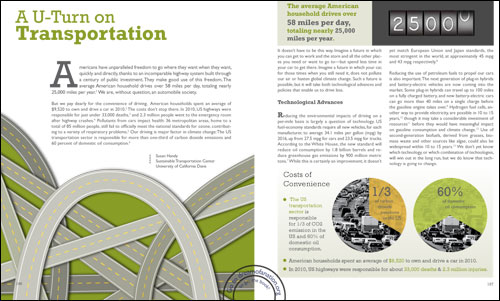Cleaning Up Transportation
Driving freely around the country is so deeply imbedded in American culture that we forget about the consequences of driving an average of 25,000 miles every year. On average a car costs $9,520 a year to own and operate, and the transportation sector accounts for about a third of U.S. carbon emissions. Nobody wants to take away the freedom of the open road, but it’s critical that we increase fuel efficiency and public transportation by embracing a less traditional, car-centric transportation system.
Smart, Sustainable Transportation
The Sustainable Transportation Center at UC Davis advocates transportation that meets the needs of all segments of society while minimizing environmental, societal, and economic costs. Learn more.
Read the Sustainable Transportation Center essay: "A U-Turn on Transportation"

Endnotes & References
Here are just a few homeworkhelper.net constitution bill of rights first amendment the first 10 amendments to the u